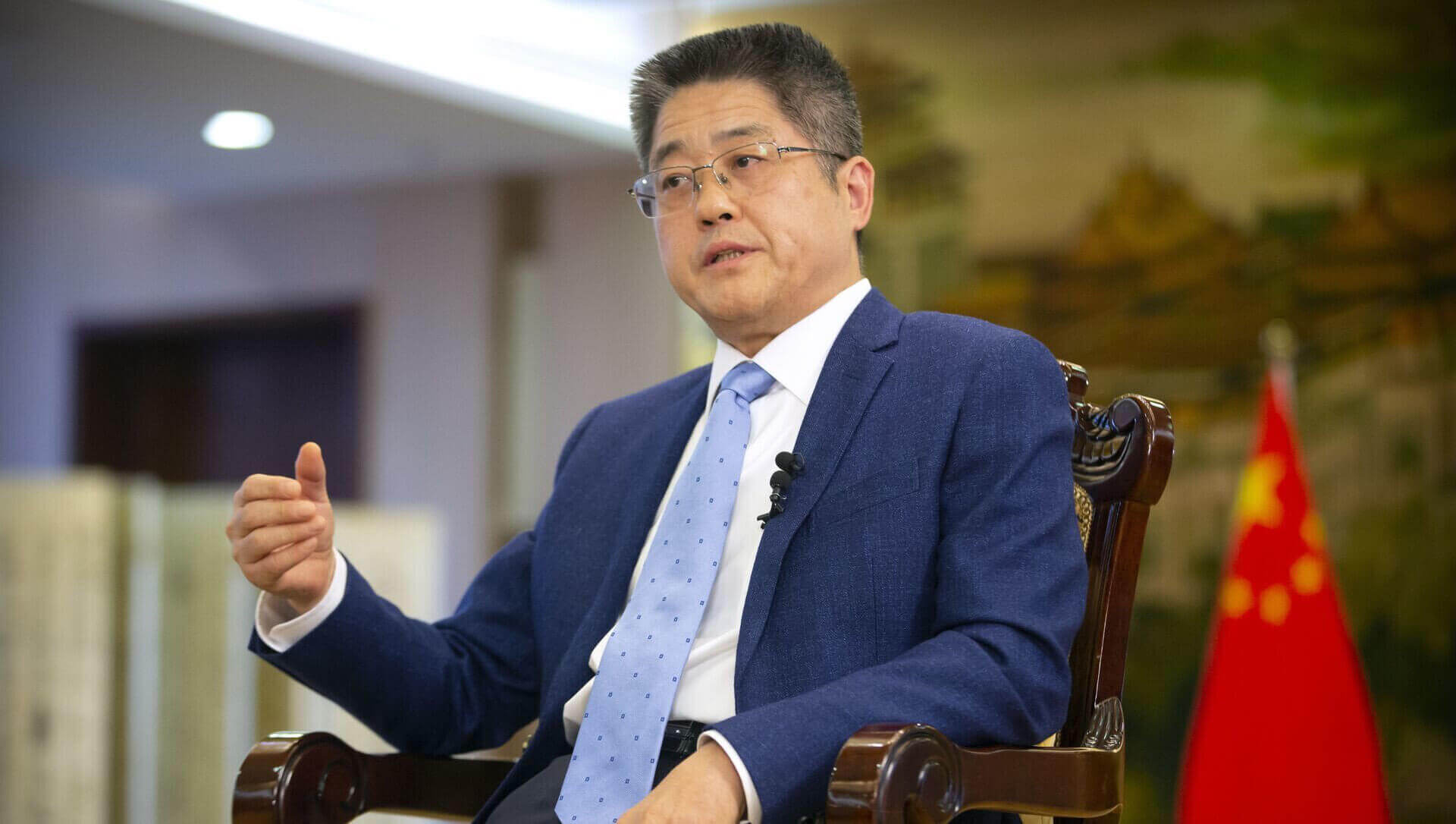During a meeting with Russian Ambassador to China Andrey Ivanovich Denisov on Tuesday, Chinese Vice Foreign Minister (FM) Le Yucheng declared that China will continue to strengthen its strategic coordination regardless of the Ukraine war.
Le underscored, “No matter how the international landscape may change, China will continue to strengthen strategic coordination with Russia for win-win cooperation, jointly safeguard the common interests of the two countries and promote the building of a new type of international relations and a community with a shared future for mankind.”
Chinese Vice Foreign Minister Le Yucheng said in a meeting with Russian Ambassador to China Andrey Denisov on April 18: "No matter how the international situation changes, China will continue to strengthen strategic #EvilAllianceChinaRussia#RussiaUkraineWar #UkraineRussiaWar pic.twitter.com/jTuPElEdmR
— alfaeer (@alfaceer1) April 20, 2022
Le also noted that their bilateral trade volume reached $38.2 billion in the first quarter of this year, an increase of nearly 30%, which he attributed to “the great resilience and internal dynamism of bilateral cooperation.”
Reciprocating the sentiment, Denisov said that Russia has always made it a diplomatic priority to develop relations with China and is “ready to further deepen bilateral comprehensive strategic coordination and all-round practical cooperation… so as to continuously benefit the two peoples and safeguard international equity and justice.”
The two diplomats’ comments come against the backdrop of a growing alliance between Russia and China amidst the Russian invasion of Ukraine. Western governments have criticised Beijing’s lack of action against Moscow’s aggression. However, China has refused to condemn Russia and has taken a neutral stance on the war.
This camaraderie between the two powers has been building up over the last few years. In November, the two countries’ defence chiefs signed a roadmap highlighting plans for closer military ties between the two countries, citing increasing concerns over the United States (US) military activity at their respective borders. Following this, Iran, China and Russia conducted joint naval drills in January to counter American pressure, given that all three countries have been subjecting to varying levels of sanctions by the US.
In a meeting with the Russian ambassador, China's deputy foreign minister Le Yucheng boasts Sino-Russian "resilience".
— Stuart Lau (@StuartKLau) April 19, 2022
"No matter how global dynamics evolve, China will, as usual, strengthen strategic coordination with Russia... and join hands to safeguard common interests." pic.twitter.com/RL9MDipCSE
In fact, in support of Russia’s provocations, Chinese Foreign Minister Wang Yi went as far as to justify Russia’s security concerns in Ukraine as “legitimate,” saying they should be “taken seriously and addressed.” Indeed, Western intelligence officials have claimed that China had prior knowledge of the Russian invasion and in fact asked Moscow to delay its plans until after the Beijing Winter Olympics.
China also refused to condemn Russia’s violence in Bucha while addressing the United Nations Security Council (UNSC) earlier this month and instead called on the Council to verify facts before resorting to “unfounded conclusions.” Zhang Jun, China’s Permanent Representative to the UN, criticised the West’s sanctions on Russia, saying they are “not an effective means to solve the problem” and will only “accelerate the spillover of the crisis, and bring new and complex problems.”
Beijing has also abstained from a UNSC vote calling for a withdrawal of Russian troops from Ukraine and voted against a US-initiated resolution in the UN General Assembly to suspend Russia from the UN Human Rights Council.
Reacting to China’s stance on the war, US Treasury Secretary Janet Yellen at the start of the month expressed her “fervent” hope last week that China would use its “pivotal role” and “special relationship” with Russia to persuade it to stop the war. She added that China could not expect the global community “to respect its appeals to the principles of sovereignty and territorial integrity in the future if does not respect these principles now when it counts.”
However, China’s latest comments hint that Beijing’s relationship with Moscow remains as close as ever.

